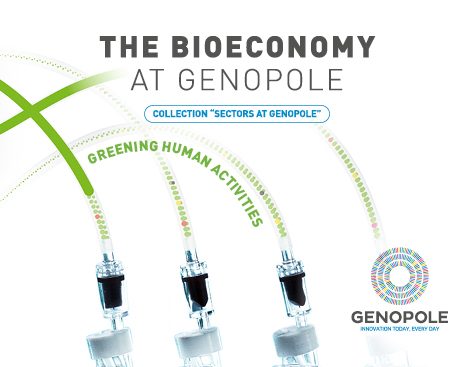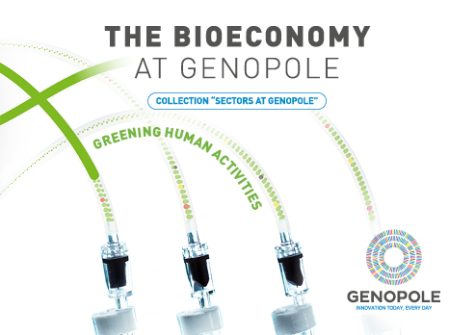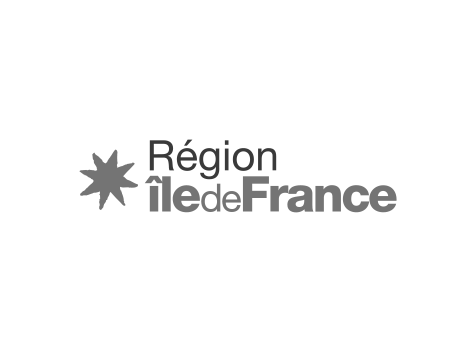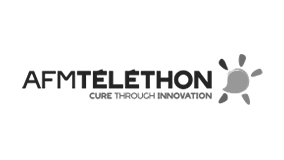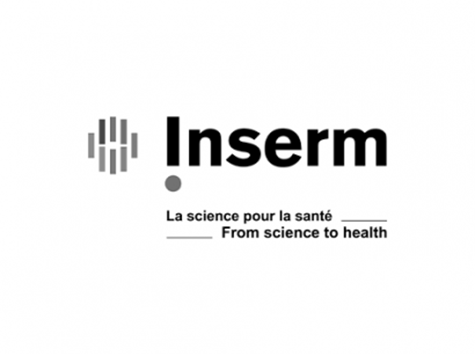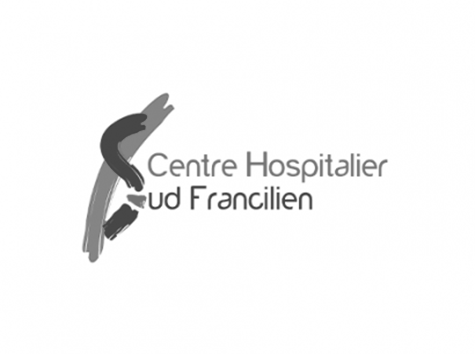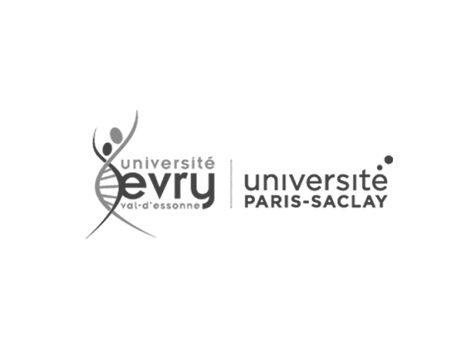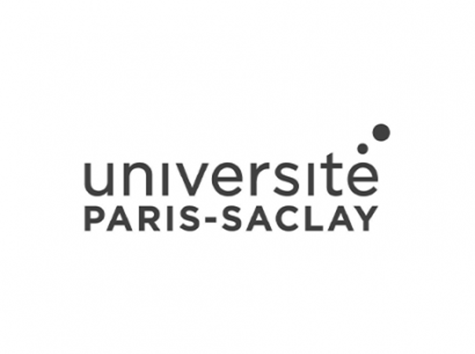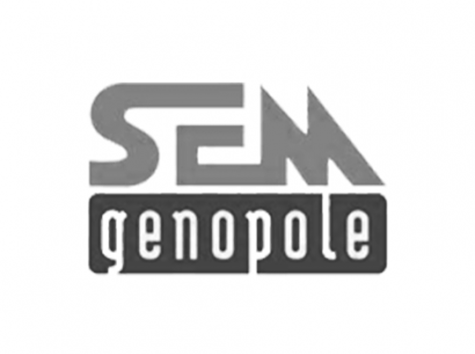GENOPOLE, A PIONEER IN SYNTHETIC BIOLOGY
In 2008, Genopole founded France’s first laboratory dedicated to synthetic biology and participated in the creation of the first university degree for the discipline: the European Master 2 in Systems & Synthetic Biology (mSSB) at the University of Évry-Paris Saclay. Thereafter, Genopole drew and continues to draw researchers and industrials in that field. Since 2012, a team from Évry has participated every year in iGEM, the renowned international competition for synthetic biology.
BIOTECHNOLOGIES: A VITAL LEVER FOR THE BIOECONOMY
The impetus provided by synthetic biology has, today, found its place as a part of the larger development of industrial and environmental biotechnologies at Genopole.
Activities at the biocluster include biomanufacturing (biofuels, biomaterials, biodrugs, etc.), nutrition (alternative proteins, synthetic flavorings, etc.), environmental monitoring and remediation, and sustainable agriculture.
The innovations born of these biotechnologies are all keystones for a bioeconomy under construction.
AN ADVANCING BIOECONOMY AT GENOPOLE
Beyond bringing good to the environment, advancing a bioeconomy sector also contributes to the nation’s independence for resources and the development of high added value, job-creating industries. The emergence of this new economic model is empowered by the innovation, growth and industrialization capacities of biotech start-ups, in other words, Genopole’s raison d’être.
Dedicated to R&D in genomics and biotechnologies, Genopole offers structures and services to accompany the creation and growth of biotech businesses.
The growing number of non-healthcare-sector businesses over the last ten years illustrates a dynamic underway at the biocluster.
Today, the emerging bioeconomy sector at Genopole comprises two academic laboratories, three shared-use technological platforms, and 30 businesses. The biocluster aims to increase its attractiveness for bioeconomy researchers and industrials.
LIFE SCIENCES AND TECHNOLOGIES: A KEY TO TOMORROW’S INDUSTRY
Life sciences and progressing biotechnologies can transform the industrial world.
Chemistry, materials, foods and many other sectors will benefit from innovations made possible by biological technologies.
INDUSTRIAL PRODUCTION
🚨 THE ISSUES
- Develop biosourced production and increase the share of biomanufacturing notably in the fine chemicals sector
🔎 USES
- Metabolic engineering and biological production in:
-
- microorganisms (bacteria, yeasts, unicellular microalgae, etc.)
- plants
- insects
-
- Green chemistry and biocatalysis: natural catalyzing enzymes as alternatives to conventional chemistry
- Biosourced chemistry: from agricultural, forest, and other biomasses, including by-products and waste
Working for industrial production : Abolis, Algentech, Altar, Ever Dye, Faircraft, Global Bioenergies, Pharming, STH Biotech, Synovance
NUTRITION, ALTERNATIVE PROTEINS
🚨 THE ISSUES
- Meet rapidly-growing needs for human nutrition, notably as concerns proteins
- Increase national and European autonomy for protein needs in animal nutrition
🔎 USES
- Alternative proteins, new resources for human nutrition (Novel Food regulation):
-
- insect farming and transformation
- algae/microalgae culture and transformation
- protein production via yeast fermentation
- cellular agriculture
-
- Novel sources of proteins and other nutriments for animal nutrition: insect farming and transformation, algae culturing, wood fermentation, etc.
Working for nutrition, alternative proteins: Algama, Gourmey, Nextprotein, Nutropy, Standing Ovation, Yeasty, Ynsect
ENVIRONMENTAL MONITORING AND REMEDIATION
🚨 THE ISSUES
- Monitor the environment, manage and diminish pollution
🔎 USES
- Pollution-detecting biosensors
- Biologicals systems for pollutant capture
- Bioremediation: biological breakdown of pollutants
Working for environmental monitoring and remediation: Biomede, Evaldepol, Laboratoire Watchfrog, Safeinsight
SUSTAINABLE AGRICULTURE
🚨 THE ISSUES
- Reduce agricultural loss, optimize pesticide use, limit chemical fertilizers
🔎 USES
- Plant disease diagnostics
- Alternative disease prevention solutions
- Novel natural fertilizers
- Valorization of by-products
Working for sustainable agriculture: Adgia EMEA, Anova Plus, Céaritis, Phagos, Plantik Biosciences

